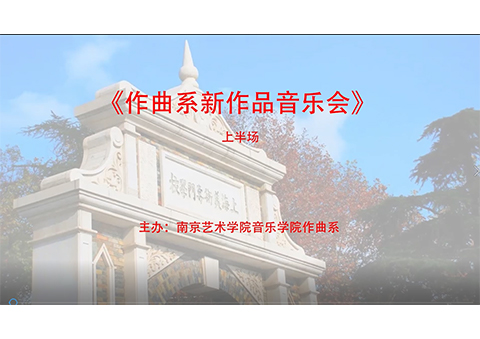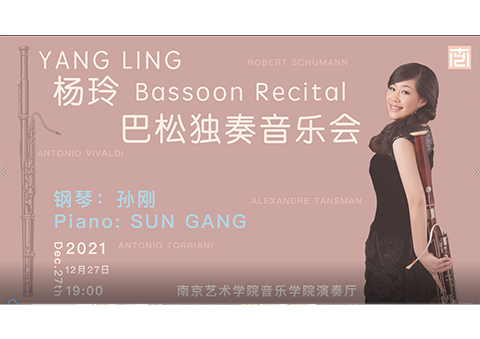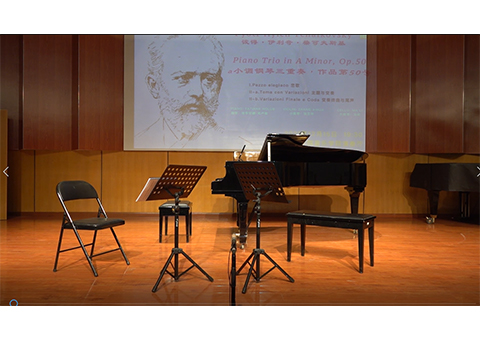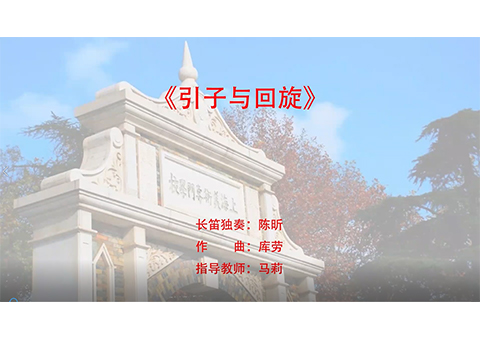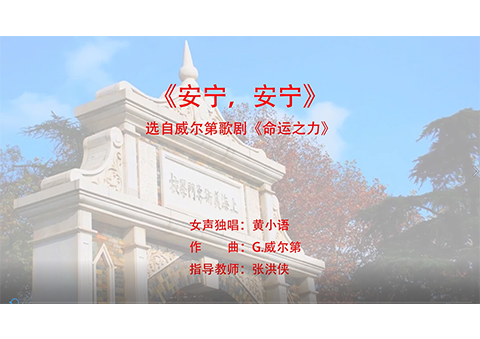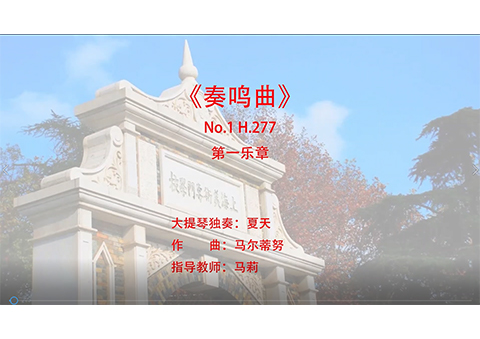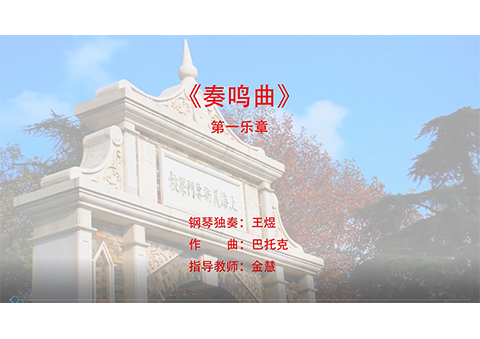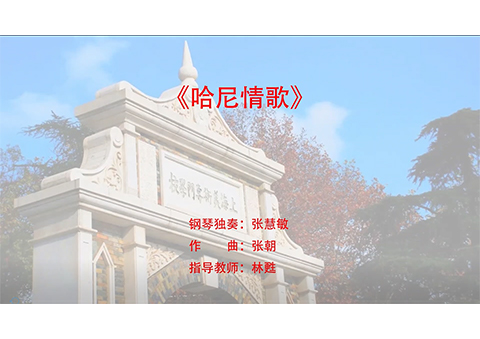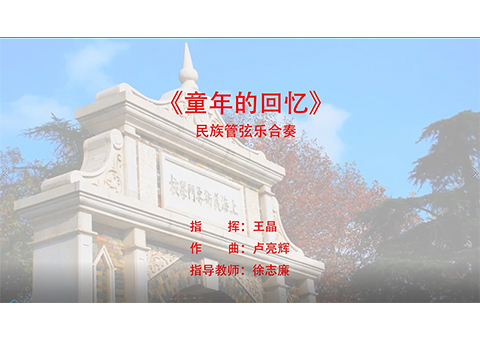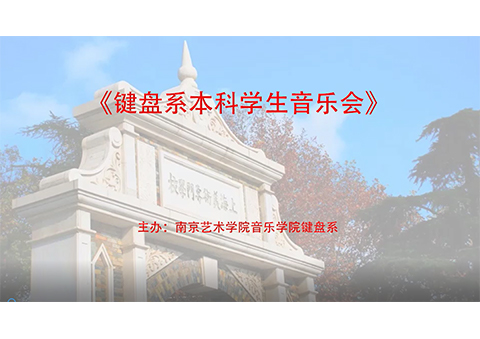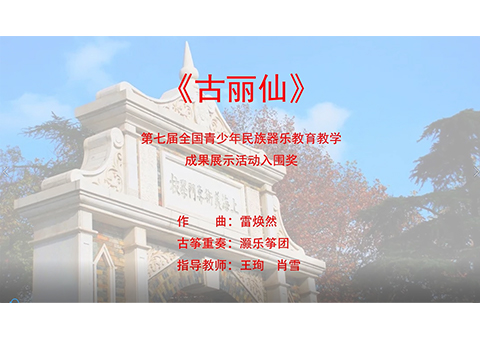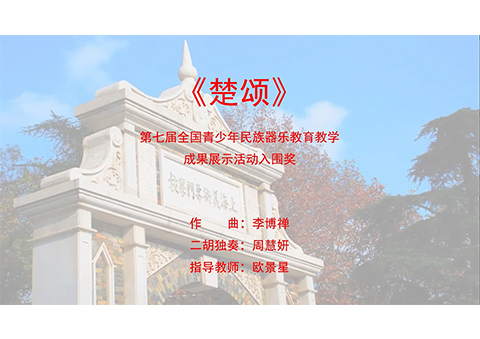Music
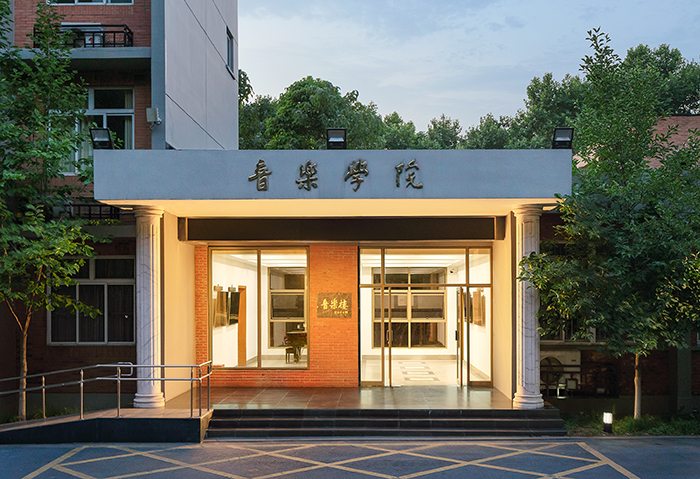
The School of Music of Nanjing University of the Arts (NUA) is one of the oldest higher music education institutions in China. In 1921, Shanghai College of Fine Arts, the predecessor of NUA, opened a six-week summer music training class for art teachers, marking the official incorporation of music professional training into the College's teaching system. In 1923, Shanghai College of Fine Arts established the Department of Music. In 1952, the Department of Music of East China Institution of the Arts was founded after the Department of Music of Shanghai College of Fine Arts merged with the Music Major of the Department of Art, Shandong University. In 1958, the Department of Music of East China Institution of the Arts was renamed the Department of Music of NUA. In 1999, the name was finally decided as the School of Music of NUA. The School of Music employs over 100 staff members, of which 12 are doctoral and 62 postgraduate supervisors. The total number of undergraduates, postgraduates, and doctoral students exceeds 1,000.
Introduction of Majors:
Musicology: Musicology is the Higher Education Institution Star Major Construction Site of Jiangsu Province. In 2010, it was approved as the National Featured Major Construction Site by the Ministry of Education. In 2020, it was recognized as the National First-Class Major Construction Site. The faculty has been rated as the Excellent Teaching Team in the Qinglan Project (Musicology) of higher education institutions in Jiangsu Province. All faculty members hold doctoral degrees. Of the nine full-time teachers, three are doctoral supervisors and five are postgraduate supervisors. During the five-year study, students need to learn basic knowledge of musicology and related theories and receive systematic training in data retrieval, reading and analysis, field research, essay writing, etc. This major aims to cultivate interdisciplinary professionals in multiple fields including education, research, news gathering and editing, planning, cultural management, and others.
Composition and Composition Theory: Composition is the Higher Education Institution Featured Major of Jiangsu Province. In 2010, the faculty of the Composition Department was awarded the Excellent Teaching Team of Jiangsu Province; in 2012, the major was selected as one of the Jiangsu Province 12th Five-Year Plan Key Majors in Higher Education Institutions. The five-year major now has 12 teachers, including those teaching in the Conducting major. Two of them are doctoral supervisors and four are postgraduate supervisors. It has presented prodigious amounts of excellent new works and completed major tasks concerned. Computer-aided Algorithmic Composition, established nearly two decades ago, is one of the first of its kind to recruit students in China. The major aims to train music professionals, who are equipped with sophisticated skills, rich technical theories, and the ability to work in sectors such as creation, education, and editing.
Music Performance (Chinese Traditional Musical Instruments): It is the Higher Education Institution Star Major Construction Site of Jiangsu Province. Teachers and students have won the Chinese Golden Bell Award for Music, Wenhua Award, and other honors. Its teaching traditions and talent training are influential among national art schools. 11 out of the 13 teachers are postgraduate supervisors. The major mainly offers the following courses: Solo Performance, Traditional Chinese Instruments Ensemble Performance, History of Traditional Chinese Instruments, History of Chinese Music, and Traditional Chinese Music. Its goal is to develop musical talent, who can perform or teach traditional Chinese instruments in professional art groups, schools for elementary education, primary-level cultural units, and radio, film and television departments.
Music Performance (Vocal Performance): Vocal Music Department houses 12 teachers, of which 9 are postgraduate supervisors. Many of them once studied or held concerts abroad. As a Key Discipline of Jiangsu Province, it is to provide Bel canto and Chinese folk music vocalists. The main courses comprise Vocal Performance (Bel Canto Chinese Folk Music Singing), Opera Performance, Stage Performance, Ensemble, Chorus, and History of Vocal Music. The Department has produced several winners at vocal music contests at home and abroad, including Città di Alcamo, and cultivated an array of high-caliber talent for China, and even the world.
Music Performance (Piano and Keyboard Musical Instruments): The major employs 11 teachers, including seven postgraduate supervisors. Many of the faculty members once studied and held concerts abroad. The main courses include Piano (major), Accordion (major), Chamber Music for Piano, Chamber Music for Accordion, History of Piano Art, History of Western Music, and Stage Performance Practice. The major's goal is to train talent, who can play piano, play accompaniments on the piano, and teach piano. Its students have won prizes at international and national piano contests.
Music Performance (Orchestral and Percussion Instruments): Orchestral Instruments Department offers courses on 16 professional instruments, with an established multi-level and -orientation system for undergraduates, postgraduates, overseas students, and advanced students. Among the 22 full-time teachers, six are postgraduate supervisors, and many once studied and held concerts abroad. The Department owns full-fledged modern performance halls, rehearsal halls, piano rooms, and chamber music classrooms. It obtained satisfying results at contests at home and abroad, such as the Lipinski International Marimba Competition, and has shaped a curriculum system incorporating required courses, study electives, and free electives during years of schooling. The Department aims to cultivate interdisciplinary professionals, who can perform as soloists, in ensembles and symphony orchestras and engage in teaching and research.
Musicology (Normal): The major was approved to be renamed Music Education in 2021. It has nine teachers, including three postgraduate supervisors. The main courses are composed of Pedagogy, Teaching Method of Music, Choral Conducting, Impromptu Piano Accompaniment, Basics of Vocal Music, Chinese and Foreign Music History, and Traditional Chinese Music. Its goal is to train talent in music education, who have good music taste, extensive humanity and art knowledge, comprehensive basic music theory and innovation capability, and sound professional skills. The graduates are expected to work in music teaching, training, popularization, communication, promotion, and management at elementary education institutions, training institutions, and primary-level cultural units.
Music Performance (Music Drama): The major has established a complete teaching system covering postgraduate program, undergraduate program, and Music Drama Class at Affiliated Secondary School of NUA and is committed to training interdisciplinary professional personnel in music, dance, and drama performance. Teachers won the Five-One Project Award of the Publicity Department of the CPC Central Committee, the Wenhua Award of the Ministry of Culture, the Gold Medal in Team Award at the National Young Singers Grand Prix, and other national prizes. They also performed at World Expo, Youth Olympic Games, Asian Youth Games, and other international events. Original musicals The Ancient and the Present and Choose Life and a selected drama Tour in Global Musicals obtained subsidies from the China National Arts Fund, were awarded Peking University Academy Awards of Musical and were selected into the Taiwan Zhiyin Musical Festival and Jiangsu Zijin Culture and Art Festival.
During the past century, the School of Music supplied the world with prodigious amounts of musicians, composers, and theorists. Especially, it boasts a profound background and excellent high-caliber professionals in traditional Chinese instrument performance. Over the recent years, the faculty and students visited European, North American, African, and Asian countries for performance and exchange. They performed at the Concert to Celebrate the 40th Anniversary of the Establishment of the Diplomatic Relations between China and the United States, Concert to Celebrate the 45 Years of Diplomatic Relations between the People's Republic of China and the Kingdom of Thailand, Concert to Celebrate the 15th Anniversary of the Return of Macao to the Motherland, and other significant events. The School was also invited to attend Princeton International Music Festival, Musica nova Helsinki, Atlas Festival, and Moshito Music Conference and Exhibition. In addition, it held the Chinese Music Concert at Janáček Academy of Music and Performing Arts Brno.
The School of Music provides undergraduate, postgraduate, and doctoral programs for both Chinese and international students. It has Musicology Department, Composition Department, Orchestral Instruments Department, Traditional Chinese Instruments Department, Vocal Music Department, Piano Department, Music Education Department, and Musical Department. The School also owns some platforms for academic research, art practice, and international cooperation, including the Institute of Musicology, Ethnomusicology and World Music Research Center (Oriental Music Research Center), Contemporary Music and Opera-Musical Research Center, Bach Art Center, Guqin Research Center, and Jiangnan Music Development Center. The School of Music has cooperated with many foreign universities and colleges in a great variety of fields, such as student exchange, co-creation, co-performance, and co-organization of academic activities. As a result, the School continues to increase its international influence.
Faculty members and students of the School have won nearly 100 awards in various international and domestic music competitions, created over 100 musical works, and held at least 1,000 concerts of different types. They have published music-related monographs and more than 1,000 papers, translations, and reports, compiled and translated 100-odd literary works, and were awarded 100-plus prizes.
The School of Music aims to build a top-notch music school in China, which is embedded with fine Chinese cultural traditions, has the aspiration to serve the world and the future, and keeps pace with the times.
The College of Music of the Nanjing University of the Arts (NUA) is one of the oldest music institutions of higher education in China. In 1921 the Shanghai Art Training School, the predecessor of the NUA, set up a six week summer music training courses specially for art teachers for advanced study, marking the formal entry of the cultivation of music talents into the teaching system of the Shanghai Art Training School. In 1923 the Department of Music was established. In 1952 the Music Department merged with the Music Department of the Art Department of the Shandong University to establish the Music Department of the East China Art Training School. In 1958 the Music Department was renamed the Music Department of the Nanjing University of the Arts. In 1999 it is was named the Music College of the Nanjing University of the Arts.
In the course of over one hundred years of development, a large number of famous music performing artists, composers, and theorists have emerged in the College of Music, especially in the field of Chinese musical instruments performance which has a profound tradition and excellent high-level skill. The faculty and students have performed concerts in the United States, the United Kingdom, France, Germany, the Czech Republic, Japan and other countries, and participated in cultural exchange activities such as music festivals.
The College of Music implements an integrated teaching model for undergraduate, master’s, and doctoral students, and has also cultivated many international students. The College has Musicology Department, Composition Department, Orchestral Instruments Department, Chinese Instruments Department, Vocal Department, Piano Department, Music Education Department, Musical Theater Department, etc., as well as the Institute of Musicology, Ethnomusicology and the World Music Research Center (Eastern Music Research Center), Contemporary Music and Opera-Musical Theater Research Center, Bach Art Center, Gu Qin Research Center, Jiang Nan Music Development Center, providing the platform for academic research, artistic practice, and international cooperation. We have carried out extensive cooperation with many colleges and universities in many countries, including exchanging students, co-creating, co-performing, and co-organizing academic activities to continuously enhance the international influence of the College of Music.
The faculty and students of the College of Music have won nearly 100 awards in various international and domestic music competitions, created more than 100 various musical works, and held more than 1,000 concerts of various types. They have published a large number of books in music, edited and translated more than 100 literary works, and published more than 1000 various academic papers, translations, and reports; won more than 100 various awards.
Our goal is to strive to build a first-class music school in China with the spirit of Chinese culture, a vision of the world and the future, and develop in step with the times.
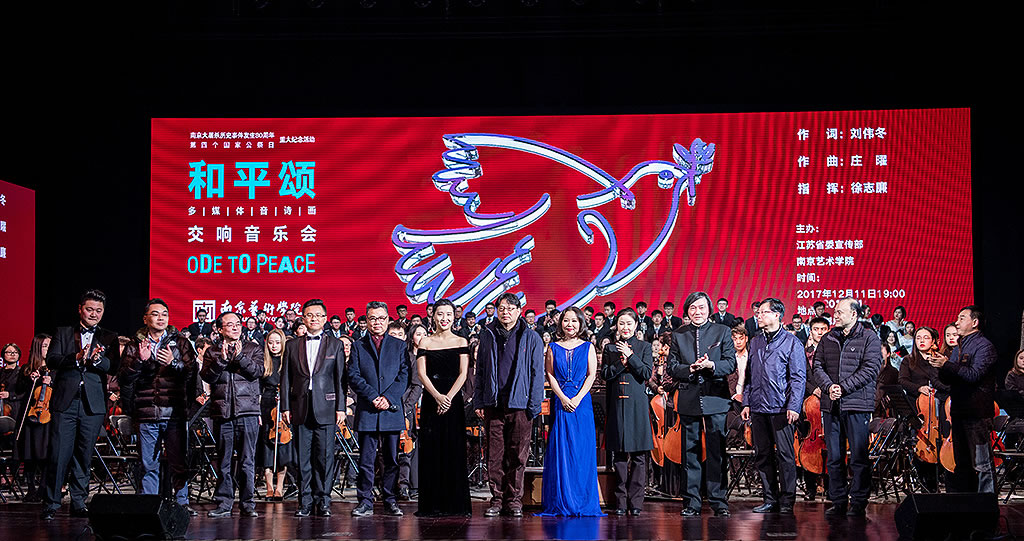
Ode to Peace Symphony Concert
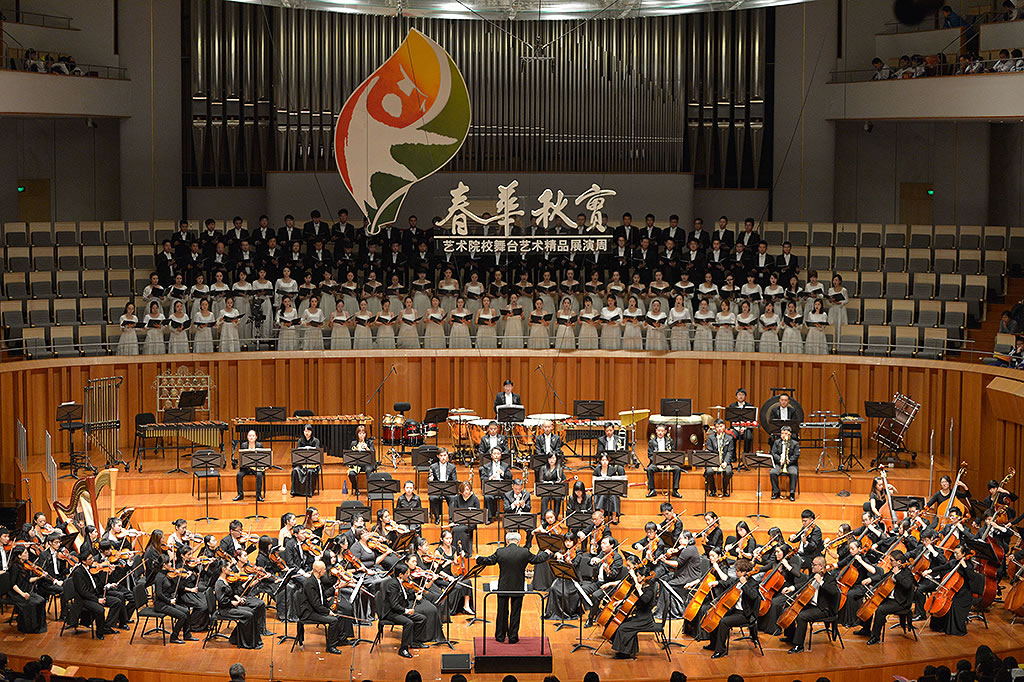
Spring and Autumn Choral Concert

College Students Symphony Concert
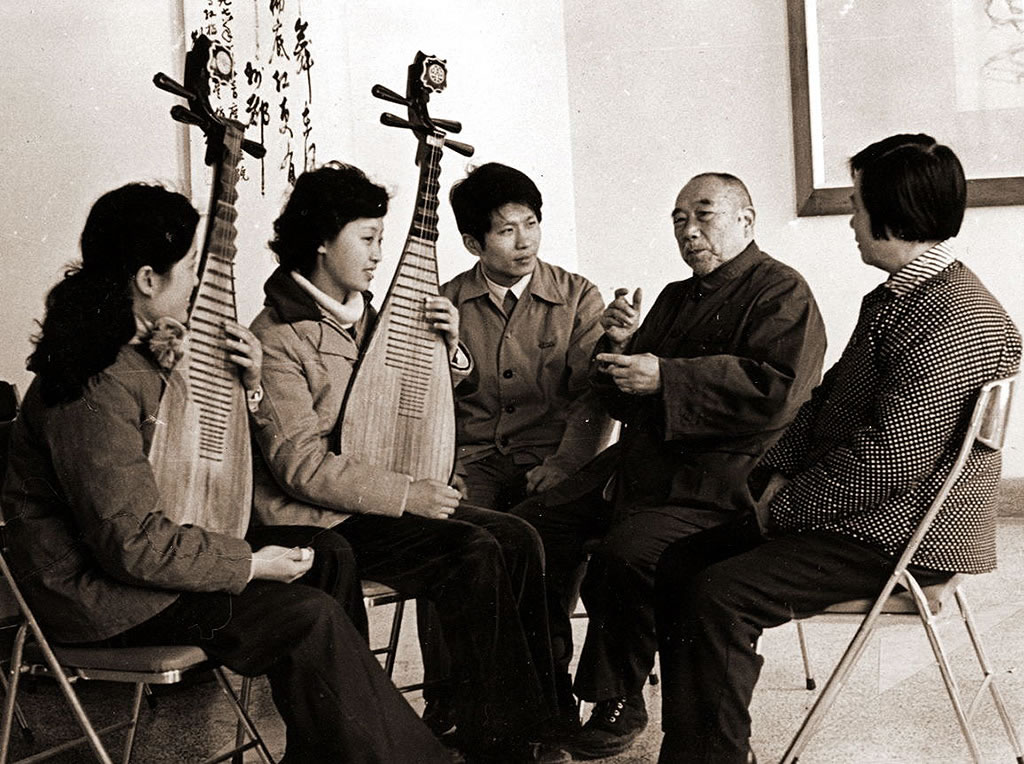
Chinese instrument -Pipa
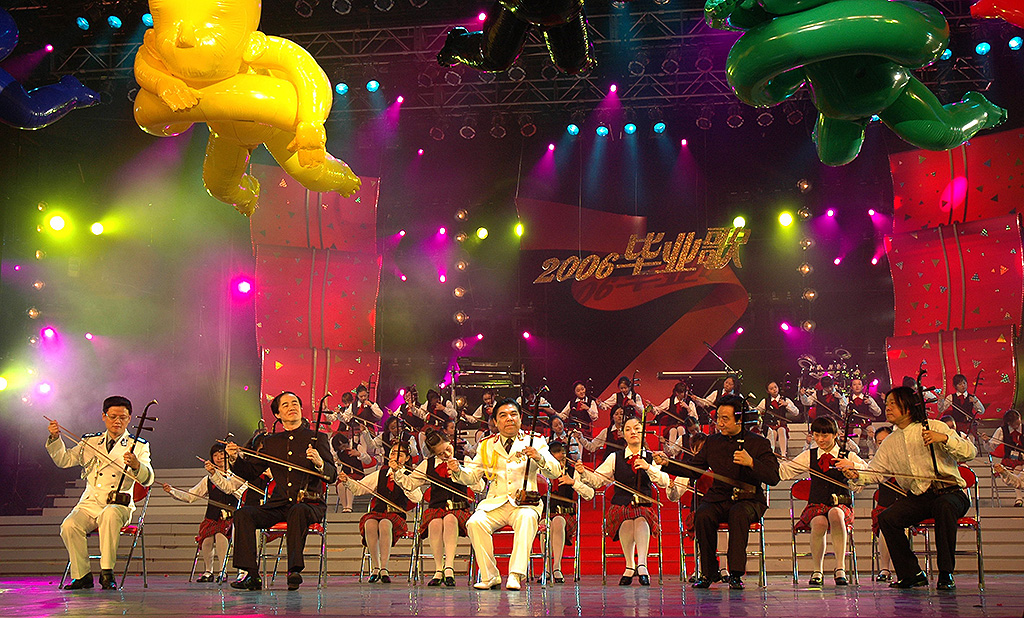
Chinese instrument- Erhu
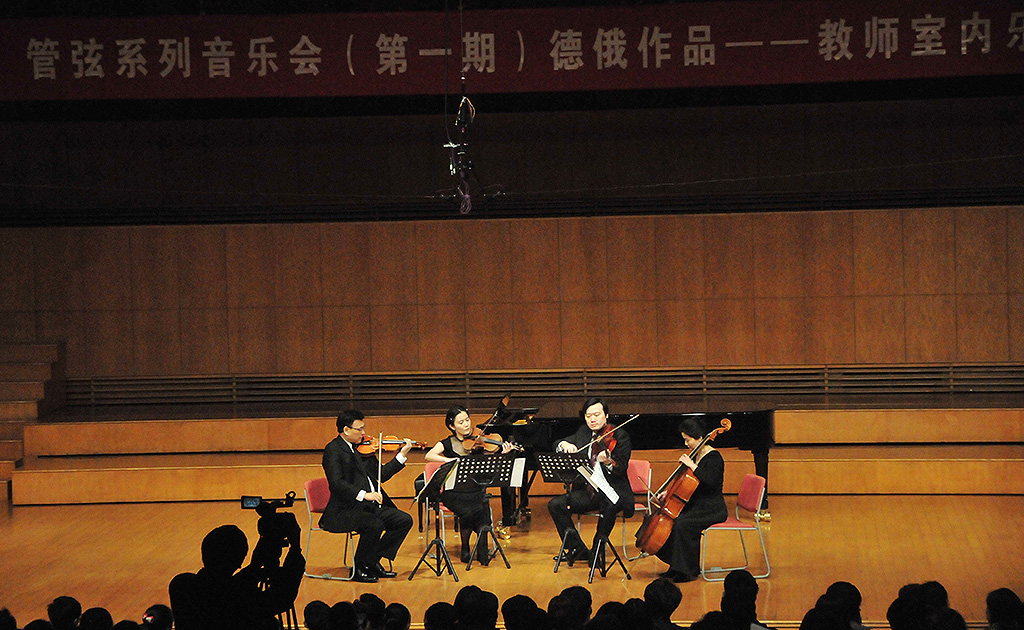
Chamber music concert

